Can You Love Pain?
Pain is something that all human beings have to endure at some point in their lives. It exists in numerous ways. At times, it is physical: a cut, a fractured bone, an illness. At other times, it is emotional: the sorrow of losing someone close to us, the anger of defeat, the isolation of being excluded, or the fear of not knowing what lies ahead. Pain can be mild or severe, brief or prolonged, but nobody is absolutely free from it. Everybody attempts to shun pain. We take medicine to prevent sickness. We work hard to prevent economic issues. We keep away from things that can harm us. That's why, whenever someone asks, "Can you love pain?" it appears perplexing or even insane.
Why would somebody wish to love something painful? But in Islam, we are instructed to view pain differently. Pain is not always evil. Pain is not always punishment. Pain is not always something to be afraid of. Pain can at times be a blessing in disguise. Pain can bring us closer to Allah, strengthen us, and make us grow. Pain can teach us things that we could never learn in comfort.
Suffering can be a means through which we become better believers and better human beings.
Allah informs us through the Qur'an that this life is a trial. In Surah Al-Baqarah, Allah states: "We will certainly test you with a touch of fear and famine and loss of property, life, and crops. Give good news to those who patiently endure" (Qur'an 2:155). This implies that enduring pain is the way of life. Every individual will undergo trials. Rich or poor, young or elderly, man or woman—there is no one who can avoid trials. Even the best of individuals in the past, the prophets of Allah, had endured immense pain. Prophet Ibrahim (Abraham) was commanded to abandon his baby son and wife in the desert. Prophet Yusuf (Joseph) was betrayed by his brothers, thrown into a well, and then jailed for an offence he did not commit. Prophet Musa (Moses) had to confront Pharaoh and take his people out of harm's way.
And our dear Prophet Muhammad ﷺ experienced suffering throughout his life; he lost his parents in childhood, he lost his wife and children, he was injured and insulted by his opponents, and he was exiled from his town of Makkah.
Still, all this notwithstanding, the prophets remained patient and had faith in Allah. Their lives remind us that suffering is not evidence of Allah's wrath. At times, it is evidence of Allah's love. Allah tests those whom He loves most dearly. The Prophet Muhammad ﷺ said: "The people who are tested the most are the prophets, then those most like them, and then those most like them." (Tirmidhi)
This teaches us that pain is not punishment. It is an opportunity to demonstrate our faith, patience, and strength. When we face suffering and yet turn to Allah, we are blessed more than we can think of.
In fact, the most lovely aspect of Islam is that pain washes away our sins. The Prophet ﷺ stated: "No fatigue, nor disease, nor sorrow, nor sadness, nor hurt, nor distress befalls a Muslim, even if it were the prick of a thorn, but Allah expiates some of his sins for that." (Bukhari & Muslim)
It is that even the slightest pain serves a purpose. When we endure pain patiently, it purifies our hearts and erases our faults. It's as though Allah is using pain to purify us again. Just as soap removes dirt from our clothes, pain removes sin from our hearts.
Pain also teaches us humility. At times when things are going well, we forget Allah. We believe we are powerful and in control of everything. But pain makes us remember how weak we actually are. It reminds us not to forget that we need Allah at all times. It prompts us to turn our faces towards Him again, to pray and beg for His assistance. In that state of need, our hearts soften, and our supplications become genuine.
Most people claim that in the days of ease, they had neglected to pray. But in days of suffering, they came back to Allah. They resumed reading the Qur'an. They prayed with more passion. They felt nearer to Allah than ever. That is one of the secret blessings of suffering; it forces us back to our Creator.
The Prophet ﷺ is reported to have said: "Wondrous is the condition of the Muslim. All his affairs are good. If a good thing happens to him, he gives thanks, and that is good for him. And if a bad thing happens to him, he is patient, and that is good for him." (Muslim)
This hadith teaches us that a Muslim can make any circumstance good. If we are glad, we thank Allah. If we are sorrowful, we have faith in Him. Either way, we are rewarded. Our faith serves to give us meaning even during the most difficult times.
In Islam, patience, referred to as sabr in Arabic, is one of the most highly regarded virtues. Allah states in the Qur'an: "O believers! Seek comfort in patience and prayer. Allah is truly with those who are patient." (Qur'an 2:153)
When we endure suffering and remain patient, Allah is with us. He hears our tears. He hears our silent dua'a. He knows the grief we bear in our chests. And He guarantees that all our suffering will be rewarded—if we remain patient and hopeful.
It's worth noting that patience doesn't mean we don't get sad. Even the Prophet ﷺ wept. When his son Ibrahim died, he cried and said, "The eyes are shedding tears and the heart is full of sorrow, but we do not say anything except what pleases our Lord." (Bukhari)
This reminds us that crying and being emotional aren't signs of weak belief. It's human. Real patience isn't the absence of sadness; it is having the strength to continue believing in Allah and trusting Him, even when our hearts are breaking.
At times, pain also makes us understand other people more. If you have ever experienced poverty, then you will likely empathise more with people who are poor. If you ever fell ill, then you will sympathise more with the sick. If you have ever experienced loss, you will be more understanding towards a person who is mourning. Pain can make us more empathetic. It makes our hearts softer and makes us better people.
It also makes us more appreciative. When we recover, we are more grateful for being healthy. When we lose something, we cherish what remains. Pain will open our eyes to blessings that we may have taken for granted before.
Islam also teaches us that this world is not our permanent abode. This life is temporary, and all that exists in it—both happiness and suffering—will pass away. Allah says: "Every soul will taste death. And We test you ˹O humanity˺ with good and evil as a trial, then to Us you will ˹all˺ be returned." (Qur'an 21:35).
That means everything here is transient. Pain one day will go away. Trouble will come to an end. And those who remained steadfast in faith will reap something greater than we can ever dream of—Paradise.
The Prophet ﷺ stated that on the Day of Judgment, the individuals who lived the most difficult lives in the world will be rewarded so immensely that they will state they never suffered whatsoever. Their suffering will be equivalent to a tiny dream in contrast to the peace and happiness they will experience in Jannah.
Therefore, when we pose the question, "Do you love pain?", what we are essentially saying is: Can you love that which pain informs you about? Can you appreciate how it draws you closer to Allah? Can you love how it cleanses your soul, matures your patience, and forges your character?
The answer is yes. Not because the pain itself is pleasurable, but because we believe that something good lies behind it. Just as we swallow bitter medicine because we know it will cure us, we endure pain because we know Allah has put wisdom in it. We know that He never wastes our suffering.
When you experience pain, always recall: Allah sees you. He is aware of what you are going through. Even if the world does not make sense, He does. And He is never far from a broken heart. The Qur'an affirms: "Surely with that hardship comes more ease." (Qur'an 94:6)
This is Allah's promise. After each night of darkness comes a morning of light. After each tear comes relief. And after each pain comes healing.
So, can you love pain? Yes, when you know it brings light, growth, and closeness to Allah. Yes, when you trust that pain is not the end of the tale, but a road to something more. Yes—when you recall that each second of endurance is accounted for, and each fight is witnessed by Him who will recompense you in full measure.
Pain is a part of life, but it is not the whole of life. And through the eyes of faith, pain becomes a way to reach something greater than we ever imagined.
About the Author
Shadil E K is a first-year degree student at Sabeelul Hidaya Islamic College, Parappur.
REFERENCES:
Imam Al-Ghazali – Ihya Ulum al-Din (The Revival of the Religious Sciences)
Al-Ghazali, Abu Hamid. The Alchemy of Happiness (Kimya-e-Saadat).
Ibn Ata’illah al-Iskandari. Kitab al-Hikam (Book of Wisdoms).
Reda, Omar. Untangled: A Refugee’s Story of Mental Health. Noor Healing, 2018.
Disclaimer
The views expressed in this article are the author’s own and do not necessarily mirror Islamonweb’s editorial stance.
3 Comments
-

This reflection beautifully reminds us that pain is not merely a burden but a divine tool of transformation. Through eloquent examples from the Qur’an, Hadith, and the lives of the Prophets, it teaches us that true faith is not proven in ease, but in how we respond to hardship. Pain is not the end; it is the beginning of spiritual awakening, patience, humility, and closeness to Allah. In every trial lies a hidden mercy, and in every tear, a step closer to Jannah. Indeed, pain—when seen through the lens of faith—is not something to fear, but something to learn, grow, and rise from
-

This reflection beautifully reminds us that pain is not merely a burden but a divine tool of transformation. Through eloquent examples from the Qur’an, Hadith, and the lives of the Prophets, it teaches us that true faith is not proven in ease, but in how we respond to hardship. Pain is not the end; it is the beginning of spiritual awakening, patience, humility, and closeness to Allah. In every trial lies a hidden mercy, and in every tear, a step closer to Jannah. Indeed, pain—when seen through the lens of faith—is not something to fear, but something to learn, grow, and rise from
-

Meanwhile flicking throughout the screen to find an academic article when I at first saw your topic of the article on the corner of the screen, I got in myself a magical energy to read it. (headline was so impressive) to be honest I didn't read your whole article, but still what I read at least served for me as a means to arouse hope in my heart.

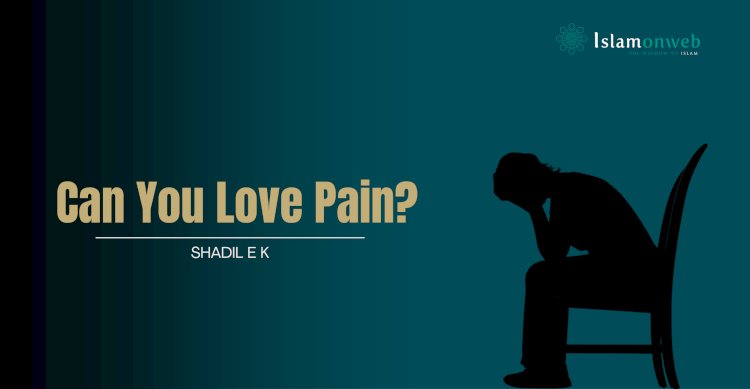


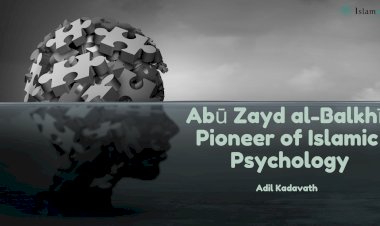
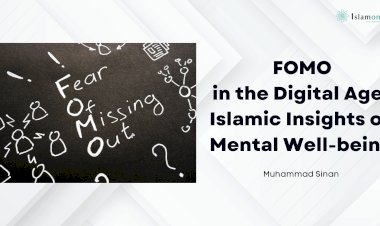
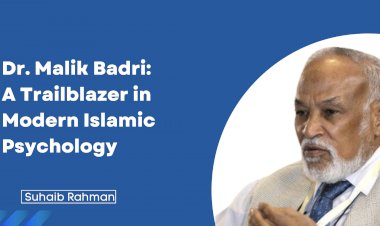
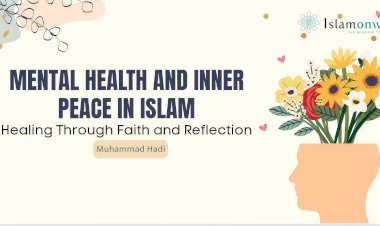
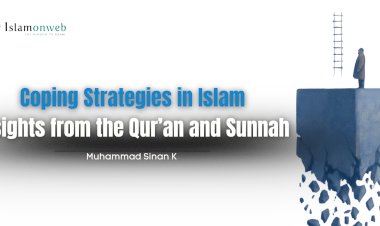
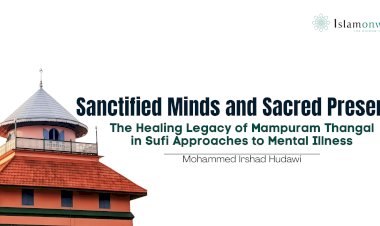














Leave A Comment